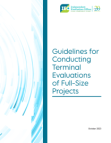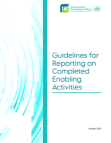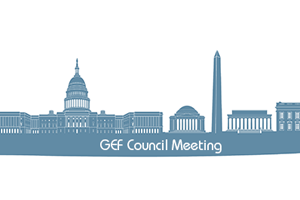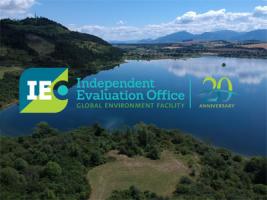The Independent Evaluation Office (IEO) of the Global Environment Facility (GEF) regularly evaluates different aspects of the GEF results-based management (RBM). This report brings together evidence from two of these evaluations: (1) the Evaluation of GEF Agency Self-Evaluation Systems and (2)…
GEF Results-Based Management (RBM): Agency Self-Evaluation and the GEF Portal
Future Proofing National Evaluation Systems Environment
As part of the IEG@50: Lightning Talks series, this conversation between Dugan Fraser, Programme Manager at GEI and Geeta Batra, Deputy Director and Chief Evaluation Officer at IEO - GEF examines strategies to set in place evaluation systems that not only assess the current state of the…
Guidelines for Conducting Terminal Evaluations of Full‑Size Projects 2023
The Global Environment Facility (GEF) Evaluation Policy (2019) requires GEF Agencies to evaluate GEF-financed projects at completion. A terminal evaluation provides a comprehensive and systematic account of project performance, factors that affect performance, implementation, and project…
Guidelines for Conducting Program Evaluation 2023
The Global Environment Facility (GEF) Evaluation Policy (2019) requires that the lead GEF Agency will evaluate a program at the end of its implementation to provide a comprehensive and systematic account of its performance and the factors that affect performance. Program evaluations are expected…
"What" and "Why" of the New GEF Evaluation Guidelines
The GEF Independent Evaluation Office (IEO) is introducing new evaluation guidelines that will redefine how program and project evaluations are conducted. Effective January 1, 2024, these comprehensive guidelines encompass GEF-funded programs, full-sized projects, and enabling activities.…
Guidelines for Reporting on Completed Enabling Activities 2023
An enabling activity is a project for the preparation of a plan, strategy, or report to fulfill commitments under the relevant Global Environment Facility (GEF) environmental convention. The GEF Evaluation Policy (2019) requires that GEF-financed projects be evaluated at the end of…
20 Years of Impact: IEO's Journey of Environmental Accountability and Innovation
In the realm of environmental evaluation, 20 years is a significant milestone. It marks not just the passage of time but a journey filled with lessons, successes, and innovations. In this post, we celebrate the remarkable story of the Independent Evaluation Office (IEO), an institution that…
GEF Council Meeting 65
The IEO office did not present any documents during this council meeting.
Celebrating Two Decades of Influence
Commemorating 20 Years of Excellence, Accountability, and Innovation by the GEF Independent Evaluation Office" marks the remarkable 20-year journey of the IEO, which was established in 2003 with the mission to provide independent evaluations of Global Environment Facility (GEF) programs and…
How to Get People to Change for the Planet
Installing solar panels, biking to work, switching to sustainable agriculture, buying clothes second-hand instead of new -- what do all these have in common? For one, these are all measures that could help save money and mitigate climate change. These also require individuals and institutions to…





